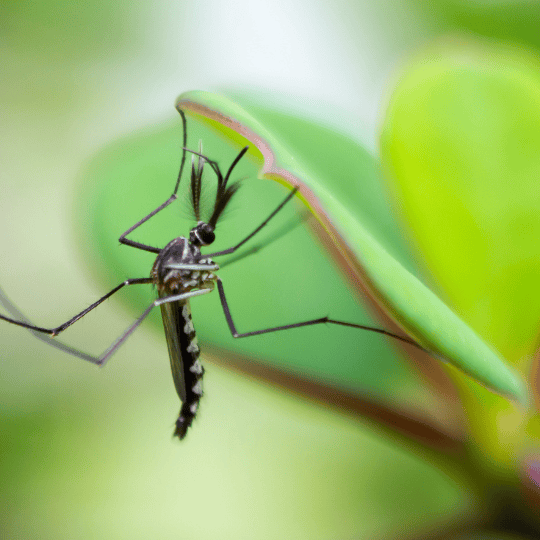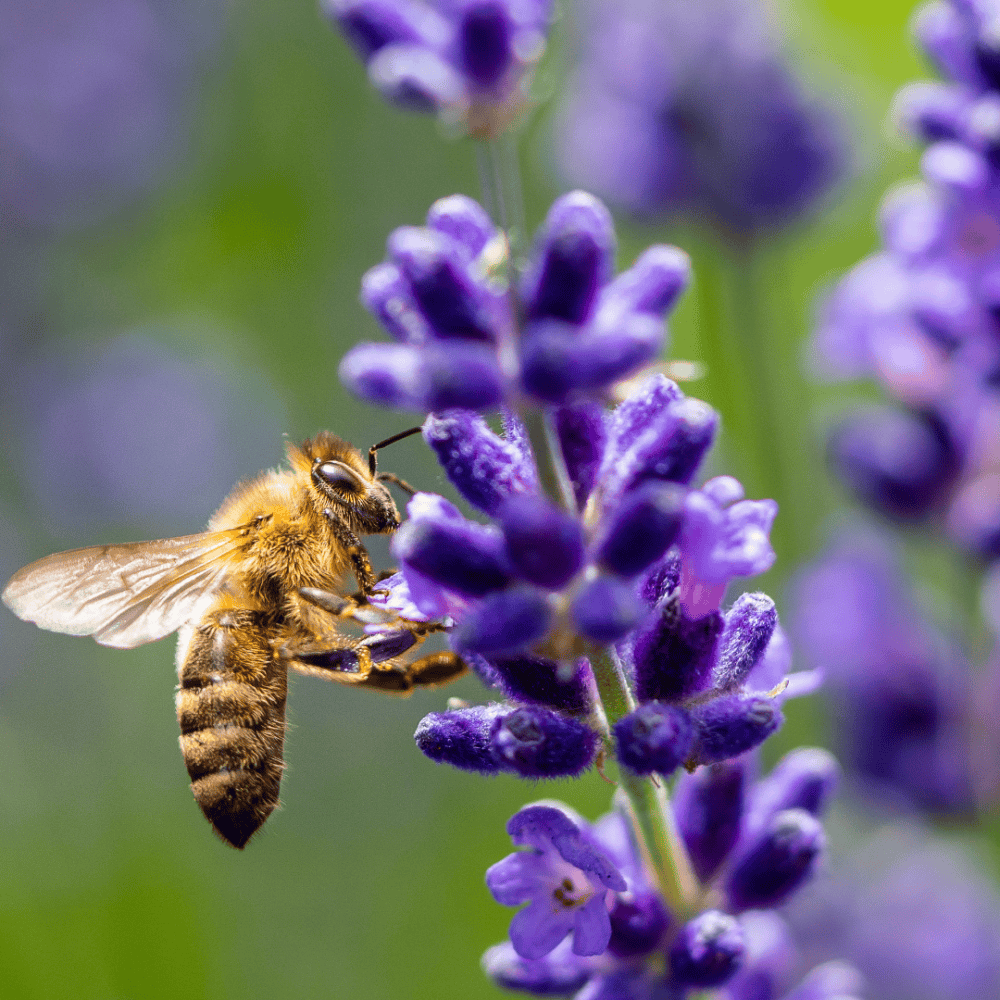
The hidden battle against mosquitoes: Scenting victory with plants
Table of Contents
Mosquitoes are tiny but formidable creatures that can wreak havoc on our outdoor activities, and in some cases, even pose a threat to our health by transmitting diseases like malaria, dengue fever, and Zika virus. While chemical repellents and mosquito nets have been our traditional go-to solutions, there is good news that a natural and eco-friendly alternative is gaining popularity – aromatic plants.
Aromatic plants have been used for centuries to repel insects, and they offer a sustainable and chemical-free way to keep mosquitoes at bay. Below, we will explore some of the most effective aromatic plants that can help you create a mosquito-free oasis in your garden or home.
Mint

This aromatic herb not only adds a refreshing touch to cocktails and meals but also acts as a potent mosquito repellent. The secret lies in the strong smell of mint, which is known to repel mosquitoes due to its high concentration of menthol. When crushed or bruised, mint releases an aroma that masks the attractant scents emitted by humans, effectively making us less appealing to these blood-thirsty creatures. Next time you’ are spending time outdoors, try planting some mint around your seating area or even crush a few leaves between your fingers for an instant mosquito deterrent.
Lavender

Scenting victory against mosquitoes seems like a never-ending battle, but did you know that lavender can be your secret weapon? It has been revealed that the essential oil extracted from lavender plants contains compounds such as linalool and linalyl acetate, which act as natural repellents against mosquitoes.
During mosquito season, consider incorporating lavender-based products into your routine to keep these bugs at bay. From body lotions and sprays to scented candles and diffusers, there are plenty of options available to help create a lavender-infused shield around you.
It is commonly known that citronella is an effective mosquito repellent, opting for lavender can provide an added bonus: relaxation. The soothing scent of lavender has been proven to reduce stress levels and promote better sleep quality – benefits that are often overlooked in the midst of mosquito warfare.
Citronella

Citronella, also known as Cymbopogon nardus, is a fascinating plant that holds the power to wage war against mosquitoes. While many of us are aware of the use of citronella candles and citronella oil as a mosquito repellent. A lesser-known fact about citronella is that its distinctive scent acts as a mosquito magnet so a powerful deterrent for these blood-sucking pests. The scent of citronella disrupts the mosquito’s sense of smell, making it difficult for them to locate their prey.
Whilst citronella offers hope on the battlefield against mosquitoes, it’s important not to get complacent. Mosquitoes are adaptive creatures that can eventually become immune to certain scents or chemicals over time. Therefore, it’s crucial that we continue exploring new perspectives in our battle against these disease-carrying insects. Whether through scientific research or innovative approaches like breeding genetically modified versions of citronella with enhanced properties, we must stay one step ahead in this ongoing war against mosquito-borne diseases.
Rosemary

While we may never have thought of rosemary as being effective in repelling mosquitoes, its scent can deter them from buzzing around us. Mosquitoes rely heavily on their sense of smell to locate their next victim and are particularly attracted to carbon dioxide and lactic acid excreted by humans. They dislike the strong fragrance emitted by rosemary, which acts as a natural repellent.
Rosemary has numerous other benefits that make it worth incorporating into our daily lives. This versatile herb contains antioxidants that help fight inflammation and protect against diseases such as cancer and heart conditions. It is also rich in vitamins A and C, which contribute to a healthy immune system. Studies have shown that the aroma of rosemary can improve memory retention and concentration levels when inhaled regularly.
Basil

While most people know and appreciate basil for its culinary uses, its powerful scent actually acts as a natural insect repellant. The aromatic compounds found in a basil plant, such as eugenol and linalool, act as deterrents to these invasive species. Placing pots of this perennial herb around areas where mosquitoes tend to linger can offer some relief from their incessant buzzing and itchy bites.
But the benefits of basil go beyond repelling mosquitoes. Basil plants have been used for centuries across various cultures for its medicinal properties. Basil leaves are known to contain antioxidants that help combat inflammation, boost the immune system, and support cardiovascular health. Additionally, the essential oils extracted from basil have been shown to possess antimicrobial activity against certain bacteria and fungi. So not only does growing basil add flavor to your meals but it also contributes to your overall well-being.
Peppermint

While many of us enjoy peppermint in our teas or as a flavoring agent, we may not be aware of its ability to act as a natural mosquito repellent. This humble plant contains high levels of menthol and other compounds that repel these blood-sucking insects. Consider bringing some peppermint oil or planting a few peppermint plants in your garden to keep these bugs at bay.
These tiny creatures navigate their environment primarily through smell, using specialized receptors to detect chemicals and locate their next meal. Recent study has confirmed when exposed to the strong scent of peppermint, mosquitoes are overwhelmed and confused by the powerful menthol molecules present. This disruption causes them to lose interest in landing on human skin or seeking out their prey altogether. By strategically incorporating peppermint into our surroundings, we can create invisible mosquito repellants against these unwelcome guests without resorting to harmful synthetic chemicals.
Marigold

This small but mighty flower releases a scent that repels these blood-sucking pests Mosquitoes, making it a natural and eco-friendly alternative to chemical insecticides. While we often associate marigolds with their beautiful appearance during summer months, their powerful fragrance acts as an odor veil that masks the presence of humans from mosquito radar.
The secret lies in its distinct aroma which is composed of terpenes. These volatile active compounds make up the pungent smell around marigold plants and are highly effective insect repellents. Researchers have shown that these beautiful flowers attract another insect called hoverflies, which feed on aphids preying on garden plants. Therefore, planting marigolds not only preserves the beauty of your garden but can also create an effective way and environment benefit for other insects.
Catnip

Catnip (Nepeta cataria), commonly known for its effect on cats, has recently revealed another hidden talent. Researchers have discovered that nepetalactone, the essential oil in catnip, acts as a natural mosquito repellent. This finding could potentially revolutionize the battle against these pesky bugs and offer an eco-friendly alternative to chemical insecticides.
Mosquitoes are not the only ones who find themselves repelled by catnip. Recent experiments have shown that catnip properties affect more than just bloodsuckers. Studies indicate that its natural compounds is equally effective in deterring cockroaches and termites, proving that this unassuming herb holds significant potential for pest control beyond what meets the eye. With concerns about environmental impact and human health risk associated with conventional pesticides on the rise, exploring natural alternatives like catnip could lead us towards more sustainable solutions.
Catnip also provides other benefits worth noting. The plant has been utilized in traditional medicine for many years due to its calming effects on humans when brewed into tea or used as aromatherapy. Research suggests that nepetalactone may possess antimicrobial properties which could be valuable in fighting certain bacterial strains.
Lemon Balm

While most people embrace lemon balm for its calming properties, they may not realize there is an additional perk to having this sweet-smelling plant around.
While many are quick to grab the chemical-laden bug sprays when mosquitoes come buzzing around, lemon balm provides an alternative that not only repels these pesky insects but also adds beauty and fragrance to your outdoor oasis. The strong citrus scent of lemon balm contains high levels of citronellal, a compound often used in commercial mosquito repellents. By simply crushing a few leaves and rubbing them on your skin or placing potted lemon balm near seating areas, you can create a naturally protected space free from mosquito bites while enjoying the delightful aroma.
Additionally, besides being effective against mosquitoes, lemon balm offers other unexpected benefits. Its versatile uses include relieving anxiety and promoting better sleep when consumed as tea or added as an ingredient in culinary delights like salads or desserts.
Eucalyptus

Eucalyptus, commonly known for its distinct fragrance, is not only a charming addition to our gardens but also a potent weapon against mosquito infestations. While most of us appreciate its refreshing scent what goes on beneath the surface is an intense battle that can be game-changing in your fight against mosquitoes.
The secret plant-based repellents lie in eucalyptus’ natural production of compounds such as citronellal and geraniol. These compounds are responsible for the strong aroma emitted by eucalyptus leaves and have been found to repel mosquitoes effectively. The sustainability and versatility of eucalyptus make it even more appealing – its fast growth rate makes it ideal for reforestation projects while its wood is highly sought after in industries like construction and furniture-making.
Conclusion
Aromatic plants is a great option and offer a natural and environmentally friendly way to eradicate mosquitoes from your surroundings. By strategically placing these plants in your flower bed, garden or home, you can enjoy their delightful scents while keeping these insects at bay. Additionally, these plants can enhance the overall appeal of your outdoor spaces and provide you with a fresh herb garden for cooking. Your outdoor experiences will be much more enjoyable, and you’ll be contributing to a healthier environment.



